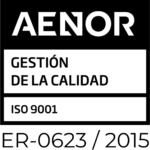View the PDF
 There are different issues related with matrimonial matters: the dissolution of the Marriage Bond and other issues that may affect the parental, property and/or economic responsibility of spouses or children.
There are different issues related with matrimonial matters: the dissolution of the Marriage Bond and other issues that may affect the parental, property and/or economic responsibility of spouses or children.
When the matter involves a member couples with different nationalities, the process can be complicated, especially as regards determining which Court will be competent to hear these issues.
Common nationality may operate as a criterion for determining jurisdiction, but it is not sufficient, since it does not allow to specify territorially which court is competent in many cases, either because the members of the couple have different nationalities, or reside in a different country.
In Europe we have several Regulations that determine the jurisdiction of the Courts based on the issues that are addressed in the proceedings. A recent decision of the Court of Justice of the European Union (ECJ) clarifies the application of these rules.
This decision emphasizes that the internal procedural rules of the States are subject to European competition rules and that a Court will have jurisdiction only if it has jurisdiction to rule on the substance of the case, in accordance with those European rules.
It refers to Regulation 2201/2003 which establishes the competence of the European Courts in matters of marriage and matters of parental responsibility and applies to all European citizens and non-Europeans residing in Europe.
This Regulation lays down rules governing jurisdiction, recognition and enforcement in the following matters:
1.- divorce, judicial separation or marriage annulment.
2.- matters of parental responsibility: right of custody and access guardianship, guardianship and similar institutions, designation and functions of person or body responsible for dealing with the child or his property, representing him and providing assistance, acceptance of the child, measures of protection of the child linked to the administration, conservation or disposition of his property.
This Regulation does NOT apply to other family issues, for which there are other European regulations:
-
- Affiliation.
- Adoption.
- Child’s first and last name.
- Emancipation.
- Maintenance and compensatory pension obligations (listed in Regulation 4/2009).
- Trusts and inheritances (Collected in Regulation 650/2012).
- Measures taken as a result of criminal offences committed by minors. nor does it apply to the economic relations between spouses, nor to the economic marriage regime.
According to this Regulation, the Court has the jurisdiction for cases in matters relating to marriage and parental responsibility:
-
- The Court that has already ruled on marriage. For example, if a Court ruled on separation, it will be competent for divorce.
- spouses’ habitual residence, or
- that of the spouses’ last habitual place of residence, provided that one of them still resides there, or
- the defendant’s habitual residence, or in the event of a joint claim, the habitual residence of one of the spouses, or the plaintiff’s habitual residence if he has resided there for at least one year immediately prior to the filing of the claim. the plaintiff’s habitual residence if he has resided there at least six months immediately preceding the filing of the claim and is a national of that state or has his “domicile” there.
In summary, it is important to establish precisely the matter of the process for not cause an international dispersion of disputes and to correctly apply the rules of the European Regulations, which do not allow spouses to agree, expressly or tacitly, by the competent Court.
















